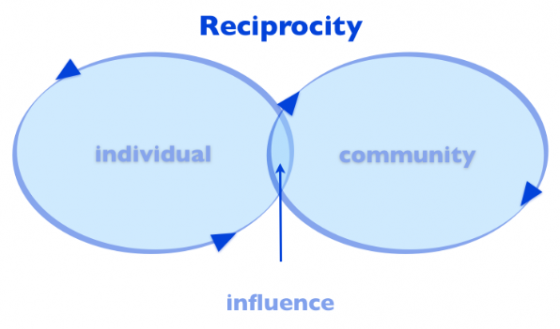Warning: Undefined array key "custom_image_width" in /misc/26/275/122/073/3/user/web/pianesi.com/wp-content/plugins/printfriendly/pf.php on line 1275
Warning: Undefined array key "custom_image_height" in /misc/26/275/122/073/3/user/web/pianesi.com/wp-content/plugins/printfriendly/pf.php on line 1276
Let’s say your low performer is complaining that you are not giving him enough feedback. The typical response would be to meet with him regularly. But how about taking a course on effective feedback instead? What if the problem was really feedback, but frustration dueto a lack of promotional opportunities? let’s see what system thinking can do for this situation…
When managers attack problems head-on, they often create as many difficulties as they solve. Systems thinkers propose a different approach.
A growing number of management analysts say the way policy-makers (and most of us for that matter) think about problem-solving is all wrong. We tend to think about problems in a linear way: Take action A to address problem B to get to solution C. Pour water on the fire to put it out. But systems thinkers argue that most of the nation’s and most organizations’ problems cannot be solved in a linear way. Doing A may address B and get you C. But it also causes D which makes B worse. Moreover, cause E which introduces new problem F, which also compounds problem B.
Welfare, some argue, has kept people poor. Efforts to hold healthcare workers accountable for medical errors have harmed patient safety and quality of care. Ongoing and expensive federal drug interdiction activities and drug-related arrests have had relatively minor effects on overall drug use and instead cause a host of other problems.Homeless shelter make it harder for homelessness to go away. Are our policy failures rooted in a common cause?
The world is not full of straight lines, the system thinkers say. It is full of loops. And loops require a fundamentally different way of thinking about how to solve problems. One of interdependence and reciprocal influence.
For your team this means that your focus on the trouble-makers, the bad-performers and the attempt to correct their behavior might be the very cause of the behavior you’re trying to address! Systems thinkers’ contend that understanding the system you’re in is more important than changing it. Sometimes awareness itself can get people to act differently.
What if we stop trying to make people perfect and— rather than eliminating errors— start using systems thinking? What different actions would we take if we were to start seeing our department as a system? What if we were to see that what needs our immediate attention is a product of a set of relationships rather then of one single cause?

Adriano understands how to increase your returns on leadership. He works with professionals in world-class organizations that include Philip Morris, Microsoft, the World Bank, Johns Hopkins University, the US Marine Corps, the State Department and NASA. A skilled experiential educator with corporate leadership experience, he is the Founder & Principal Consultant of ParticipAction Consulting, Inc., a firm committed to help clients redefine change, collaboration and power in their organizations. He co-authored "Teachable Moments of Leadership" with Jill Hufnagel in 2016, on a learning methodology that gets results by going from PowerPoint to …powerful!
Adriano Pianesi | adriano@pianesi.com



Recent Comments